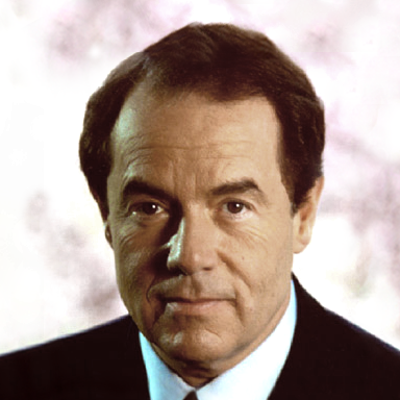Henry Ford is often quoted as saying: “If you think you can or you think you can’t, you’re right.” When we find ourselves plagued with a little internal voice constantly casting doubt, it can be challenging to invest in our abilities. But studies continue to demonstrate the impact this belief in our own abilities can have on our reality.
Maybe one short article can’t turn off that internal voice, but here I'm going to explore three cases that have inspired and surprised me. These are just a few examples of the ways a shift in your beliefs can liberate your thinking.
The Power Of A Parent's Belief
Barry Neil Kaufman rose to fame for his award-winning book Son-Rise which tells the profoundly moving story of the work he and his wife Suzi accomplished with their once-autistic son. At a young age, the boy was nonverbal, and doctors measured his IQ to be below 30. Experts lined up to tell the Kaufmans that their son’s condition was incurable and irreversible.
Through devotion and hard work—and by actively challenging these beliefs—the Kaufmans eventually saw their son transform into a verbal, extroverted happy teenager with a near-genius IQ. Kaufman's first book and its TV movie adaptation brought the nation to the Kaufmans’ door. Helping their son not only changed their lives, but also the thousands of people who were inspired to follow in their footsteps.
The Effects Of Conviction On Behavior And Ability
In his second book Happiness is a Choice, Kaufman credits Judith Hooper’s and Dick Teresi’s book The Three Pound Universe with first prompting him to reconsider the profound ramifications of our convictions and attitudes. This work cites cases in a 1980s study conducted by the National Institute for Neurological and Communicative Disorders and Stroke on people exhibiting multiple personalities. This condition, now known as dissociative identity disorder, remains a controversial diagnosis. But the study includes some shocking findings.
One woman in the NINCDS study exhibited three distinct personalities. She was observed to have three menstrual periods each month due to her condition. Another man with the condition required multiple eyeglass prescriptions, shifting even between nearsightedness and farsightedness in the span of a day. A third man, depending upon the personality assumed at the time, could either eat citrus fruits without any disturbance or suffer severe hives, convulsions and seizures.
When I first read of these cases in Kaufman's book, I was floored. My beliefs about the power of the mind were fundamentally altered.
Today, neurologists continue to puzzle over instances of bizarre physical effects of the mind on the body. But Kaufman's book made me wonder: If our beliefs and convictions could possibly hold the capacity to affect such fundamental biological experiences as menstrual cycles, eyesight and allergies, what sway might my outlook hold over my happiness, life and career?
A Standardized Test And A Twist Of Fate
A final story related to me by mental coach Trevor Moawad struck me as one of the strongest illustrations I’ve heard of the impact our beliefs can have on our behaviors.
Trevor’s dad once arrived home from a Toastmasters gathering and told Trevor a story related to him by one of the most successful magazine entrepreneurs in the world. The entrepreneur shared with those attending that he had been raised by a single mom in the Midwest and had always struggled academically, almost to the point of flunking out. His mom asked him to promise that he would take the SATs. He didn’t expect great scores and only took them out of a sense of obligation to his mother.
As you probably know, the best score you can get on the SAT is 1600. In a twist of fate, this man somehow managed to score 1480, right up with the best and brightest.
It took those SAT scores to convince him that he must be smart. Otherwise, how could he have scored that high? So, he started to behave in ways that reflected this new conviction. He chose different friends and showed up for his classes. He eventually went to an Ivy League college and became the successful head of a huge magazine empire.
But that’s not the story.
Twelve years later, he was notified that there had been an error in his score. It turned out his actual score had been 740. If that doesn’t make you stop and think, I don’t know what will.
Taking Control Of Your Beliefs And Life
I hope these cases challenge you to consider the extent to which your thoughts can wield power over your life and success. The really good news is that if you can change your thinking down in your core, it may hold the power to change the world. What you once thought impossible just might suddenly prove possible. Are you ready to start thinking differently?
Forbes Business Development Council is an invitation-only community for sales and biz dev executives. Do I qualify?
Follow me on Twitter or LinkedIn. Check out my website.
Chief of Staff | Baker Communications, Inc. Read Joe DiDonato's full executive profile here.






Comments